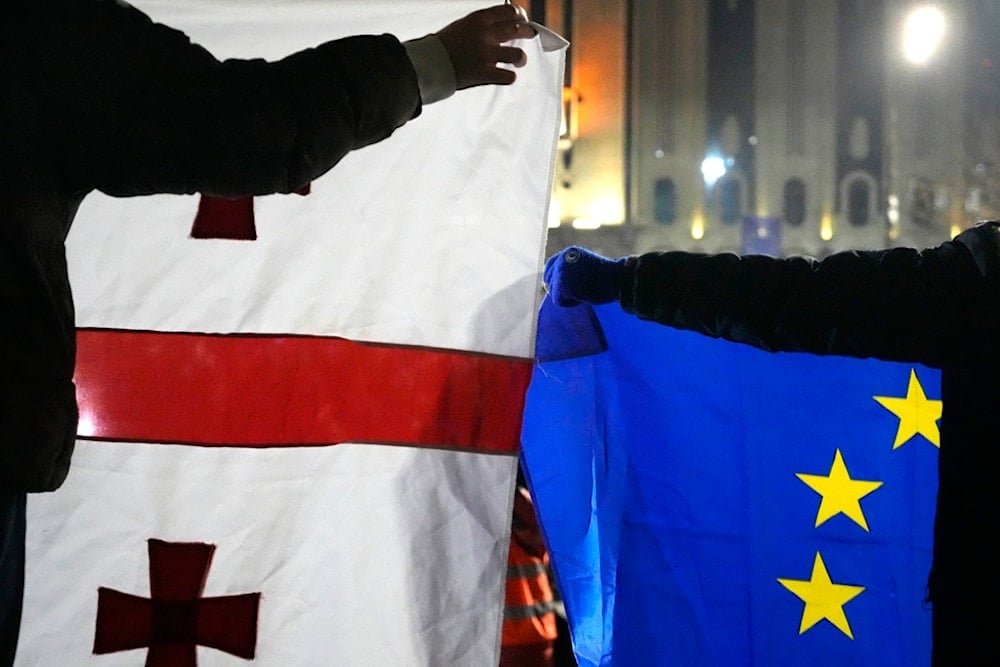EU considers sanctions, visa restrictions on Georgia after elections
Following the controversial presidential election in Georgia, the EU is exploring sanctions and possible restrictions on the country's visa-free regime due to concerns over political repression.
-

Demonstrators hold a EU, right, and Georgian flags during protests against the government's decision to suspend negotiations on joining the European Union in Tbilisi, Georgia, on December 5, 2024. (AP)
Days after Mikheil Kavelashvili, the candidate from the ruling Georgian Dream party, was declared the elected president by the Central Election Commission Chairman Giorgi Kalandarishvili, the European Union foreign affairs ministers revealed they are now considering potential sanctions and restrictions on Georgia.
Significantly, Georgian Prime Minister Irakli Kobakhidze had earlier announced that the government had decided not to pursue EU accession negotiations and would reject EU financial support until 2028. The Georgian State Security Service also claimed that protests surrounding the December 14 presidential election were being orchestrated by foreign state actors aimed at disrupting the process.
In response to these developments, EU foreign policy chief Kaja Kallas stated on Monday that the situation in Georgia was not progressing as expected for a country seeking EU membership. "We are going to discuss the consequences for the Georgian government using repression on the opposition and all the tools they are using there," Kallas said.
She added that the EU would consider several measures, including sanctions and restricting Georgia’s visa-free regime. "One question is, of course, sanctions on Georgia, and the other question is also limiting the visa-free regime," Kallas remarked, ahead of the foreign ministers' meeting in Brussels.
Georgia’s top court refuses to annul election results
Earlier this month, Georgia's top court dismissed complaints brought on Tuesday by the country's president, Salome Zourabichvili, and pro-Western opposition groups seeking to nullify the recent general election, which was won by the ruling Georgian Dream party.
The final ruling cannot be appealed and only two out of nine judges challenged it.
"The Constitutional Court of Georgia did not accept the lawsuits of the president and political parties regarding the recognition of the October 26 elections as unconstitutional," according to a statement from the organization.
The nation's pro-Western president and opposition continue to reject the election results, alleging widespread fraud yet failing to present any proof to back up their accusations. The vote reaffirmed this view.
Read more: Georgian church slams President for urging schools to back protests

 2 Min Read
2 Min Read










